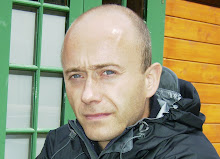I thought I'd start logging some graph data to see how my pace is decreasing over the distance of a run, so that I can (i) determine if I get slower in a linear manner or (ii) start to slow after a particular distance or (iii) something else. I'll plot elevation on these graphs too as climbing and descending is an obvious determinant of pace.

Compton 40 pace by distance, and elevation plot
At the Compton 40 my pace gradually and fairly linearly decreased from ~8 min miles to just below 10 min miles, ignoring the various climbs / descends and obvious stops / slow downs for food and navigation. I ran the last 4 or 5 miles easily so they don't represent an accurate picture of the pace I could have achieved if I'd pushed it. But the first 30-35 miles I was going at pretty much my maximum sustainable pace I think (but then again this will be a function of psychology on the day I suspect).
Let's see how my pace in the Fling compares.








.jpg)










2 comments:
Hi Brian,
I've been following this discussion with some interest but I suspect it may only be relevant if (a) you operate at the sharp end of the field where a few minutes either way are important to you, and (b) you have already accepted that for you the best way to race is to accept a significant slowing down in the later stages.
Now suppose you decide to run the first 12 miles of the Highland Fling at 8 minute miles rather than 9. This is probably not a big difference in effort someone with a marathon pace of say 6.30's, but for me (best marathon pace 7.35) it's a huge increase in effort for which I would pay later, and it only gains 12 minutes - a time I could gain more easily by managing stops better or walking a bit quicker up the hills later on.
On overall pacing, Billy Minto did some analysis in his blog following last year's Fling and showed that the majority of the guys near the front ran a much more even pace than those later on - Jez Bragg in particular was the most conservative runner in the field (relative to his finish time) over the first 20 miles.
I've also heard an opinion (maybe Andy DuBois?) that among runners of similar fitness/ability, you gain most by learning how to go down hills fast (just a technique to be learned then money for jam because it takes no more effort than descending slowly, possibly less) rather than pushing it on the flats or uphill.
Food for thought, though I suspect it's what works best in your head for each individual that is the most important.
I'll just continue with my tried and tested strategy of starting slowly......and then slowing down....
Fast starts have worked for me along with just running flat out on the anaerobic threshold.
Although not a serious runner like you this would be my plan.
Test your max. pulse rate before the race and set an audible alarm for below your threshold.
Run damn fast out of the start to get your pulse up quickly and play it by ear ;¬)
Post a Comment